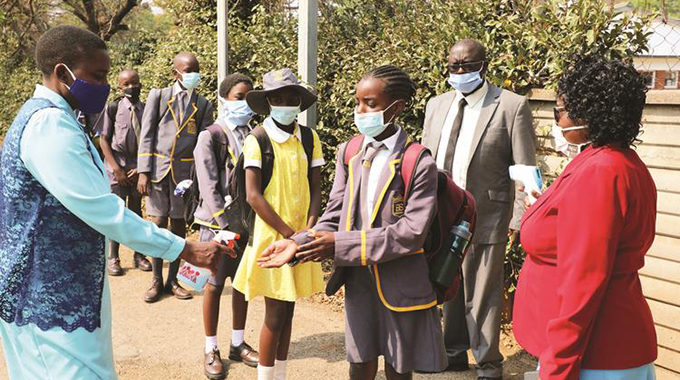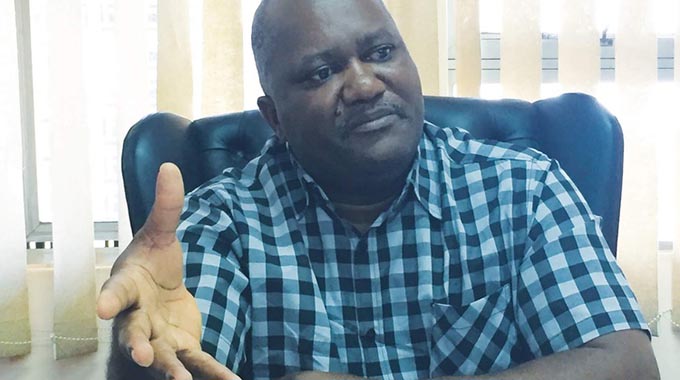Students speak on schools reopening

Roselyne Sachiti
Features, Health and Society Editor
Schools reopen on March 15 after a long break.
Following announcement of a phase four national lockdown early January, only exam writing classes returned to school with the rest learning virtually from home.
But, everything comes to an end and in the following weeks, kids will start trooping back to school.
A student excited to go back to school is Nyasha Makiseni a Grade Two pupil in Norton, just outside Harare.
She said she missed school so much and was happy to be able to go back again.
“I want to play with my friends, I will tell them everything I did during the lockdown,” she said.
She did not learn much during the lockdown. Her parents cannot afford data. Most of the times she played with neighbours kids but also read her old school work.
Another student, Marvellous Jonasi, a Form Four pupil said he was happy to return to school and study.
“Covid- 19 affected our studies. I want to go back and listen to everything my teacher says. I hope to pass my exams,” he said.
Clarisa, a Form Three student at a Mutare school said she will return to boarding school on March 13.
“My mother taught me a lot about protecting myself from Covid-19 when I go back to school. I hope to pass and make my parents happy,” she said.
Zimbabwean schools reopen at a time learning institutions for more than 168 million children globally have been completely closed for almost an entire year due to Covid-19 lockdowns.
According to new data released on Wednesday by the United Nations Children Fund (Unicef), around 214 million children globally – or 1 in 7 – have missed more than three-quarters of their in-person learning.
The analysis on school closures report notes that 14 countries worldwide have remained largely closed since March 2020 to February 2021.
According to the report, two-thirds of those countries are in Latin America and the Caribbean, affecting nearly 98 million schoolchildren.
Of the 14 countries, Panama has kept schools closed for the most days, followed by El Salvador, Bangladesh, and Bolivia.
“As we approach the one-year mark of the Covid-19 pandemic, we are again reminded of the catastrophic education emergency worldwide lockdowns have created. With every day that goes by, children unable to access in-person schooling fall further and further behind, with the most marginalised paying the heaviest price,” said Henrietta Fore UNICEF Executive Director.
“We cannot afford to move into year two of limited or even no in-school learning for these children. No effort should be spared to keep schools open, or prioritise them in reopening plans.”
School closures have devastating consequences for children’s learning and wellbeing. The most vulnerable children and those unable to access remote learning are at an increased risk of never returning to the classroom, and even being forced into child marriage or child labor.
According to latest data by UNESCO, more than 888 million children worldwide continue to face disruptions to their education due to full and partial school closures.
The majority of schoolchildren worldwide rely on their schools as a place where they can interact with their peers, seek support, access health and immunisation services and a nutritious meal. The longer schools remain closed, the longer children are cut off from these critical elements of childhood.
To call attention to the education emergency and raise awareness about the need for governments to keep schools open, or prioritise them in reopening plans, UNICEF unveiled ‘Pandemic Classroom,’ a model classroom made up of 168 empty desks, each desk representing the million children living in countries where schools have been almost entirely closed – a solemn reminder of the classrooms in every corner of the world that remain empty.
“This classroom represents the millions of centers of learning that have sat empty—many for almost the entire year. Behind each empty chair hangs an empty backpack—a placeholder for a child’s deferred potential,” said Fore.
According to the report, as students return to their classrooms, they will need support to readjust and catch up on their learning.
It further says school reopening plans must incorporate efforts to recover children’s lost education.
UNICEF also urged governments to prioritise the unique needs of every student, with comprehensive services covering remedial learning, health and nutrition, and mental health and protection measures in schools to nurture children and adolescents’ development and wellbeing.
UNICEF’s Framework for Reopening Schools, issued jointly with UNESCO, UNHCR, WFP and the World Bank, offers practical advice for national and local authorities.









Comments